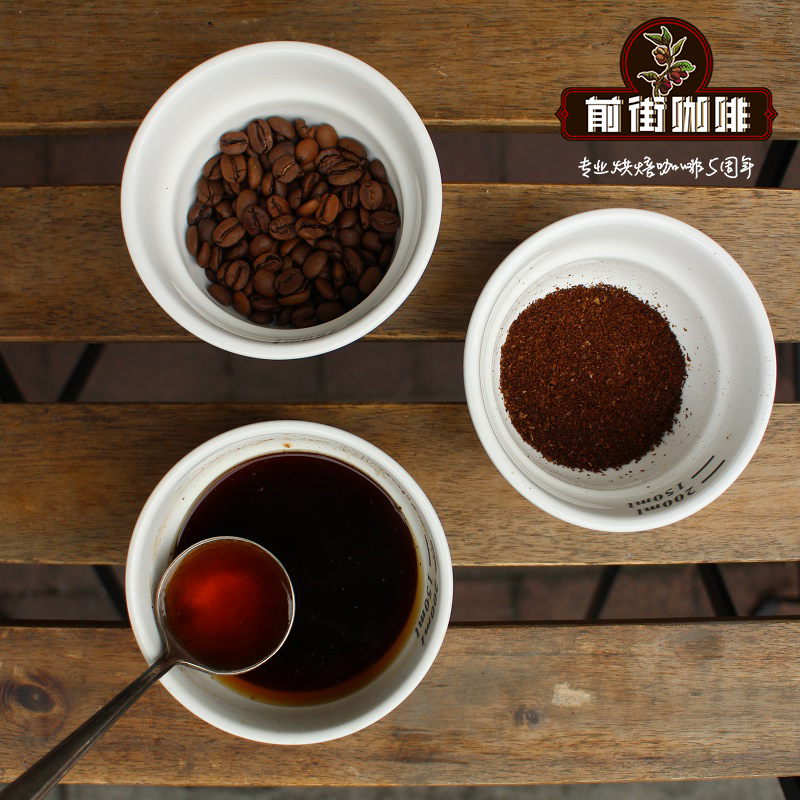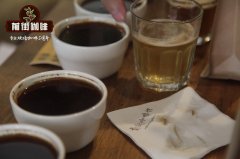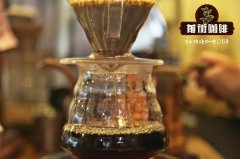Ethiopia rose summer village rose summer and Panama rose summer flavor contrast what kind of rose summer

Professional coffee knowledge exchange more coffee bean information please follow the coffee workshop (Wechat official account cafe_style)
| | Rose summer, is a variety |
The species of Geisha was first discovered in the rose forests of Ethiopia in 1931 and later sent to the Coffee Institute in Kenya. Introduced to Uganda and Tanzania in 1936 and introduced to Costa Rica in 1953.
Not many people have paid attention to Rose Summer all the time. Until one day, Don Pachi was originally brought to Costa Rica from the town of GESHA in southwestern Ethiopia, and then Rosa entered Panama from along the southern route, where Esmeralda Esmerada Manor (Emerald Manor) in Panama separated it from other varieties and won the national coffee contest champion.
| what is the difference between Rose Summer in Panama and Ethiopia?
Terroir is a French word, which refers to climate, altitude, humidity, sunshine, soil composition, water, producer habits. Wait. Although it is also a rose summer variety, Panama and Ethiopia produce rose summer, which has a completely different flavor.
Rose summer is carried forward in the manor of Panama, and Panamanian (Panamanian) rose summer coffee is grown in the western part of the country, near Costa Rica and the Pacific Ocean. The average annual temperature ranges from 16 ℃ to 25 ℃, and the average rainfall is about 3500 mm.
The main coffee producing areas in Boquet, Chiriqui province, are also famous for Volc á n-Candela, Santa Clara, Kendra and so on. Other areas include David, Remacimeinto, Bugaba and Tole.
Rosa coffee is particularly picky about the growing environment, requiring high altitude, cloud shade, fertile soil and enough accumulated temperature. Microclimate is the most important resource that makes Panamanian coffee unique. The east-west environment of the Republic of Panama converges cold air over 6500 feet through the Central Mountains, creating a variety of microclimates in the Boquete and Volc á n-Candela regions, making it a unique coffee flavor in Panamanian summer.
Each place has its own unique soil-which in turn has an impact on coffee beans, for example:
Panamanian Emerald Manor-Esmeralda Manor Rose Summer is the king of boutique coffee, commonly known as "Red Standard Rose Summer". The rose summer of jade, the aroma of flowers and the strong sweetness of tropical fruits are the consistent characteristics of the classic rose summer. Oolong tea, peach, honey, fresh and comfortable, bright and balanced, the aroma is extremely layered, the whole aroma and caramel sweetness are wrapped together, and the tip of the tongue feels sour obviously. Just in the mouth is mild and round, fruit sweet and sweet strong, like swallowing a mouthful of fresh fruit tea, sweet and clear heart. The lower the temperature, the finer the acidity. Charm is also quite long-lasting, let people feel good satisfaction!
The beans with 1700 meters of high hardness and high density are full in shape, medium particle size, thick and long, and pointed at both ends.
Panama Elida Manor, Alida Manor is located in the Boquete producing area, the elevation of the manor is almost the highest in Panama, is a rare ultra-high altitude manor in Central America! Thanks to Boquete's unique climate, wet and dry seasons, ample sunshine and precipitation, and fertile soil formed by volcanic ash from Mount Baru, the coffee cultivation of Erida Manor quickly grew its own climate, and in 1929, the estate's coffee beans were exported to Germany for the first time, earning a good reputation for Panamanian coffee. In the following 3/4 centuries, the cultivation of Arida coffee, as a family manor, has developed continuously and formed its international reputation. The taste of imported black berries is obvious, clean and full, with a good sense of fat, good fusion of sweet and sour, high-altitude tree tomato flavor, and a long-lasting sense of fat.
Jensen Manor, Volcan, Karl Jensen Rose Summer, average elevation of 1700 meters, the estate is covered with nutrient-rich volcanic soil, full of jasmine and delicate berry aromas, clean, honey, lychee, maple syrup, lemon and citrus, apple, rose, dark chocolate fruit, pomegranate, ripe grapes, peaches and dark berries.
Gesha Village, Ruoxia Village (source: GrandCru)
Gori Gesha forest, where the rosette species were first discovered.
They collected seeds from native rose summer trees, and after careful screening, they sent the seeds to professional institutions for genetic testing to determine that they belonged to the original collection site of Panamanian rose summer varieties; then, through the study of the plant shape of coffee trees, the appearance and size of coffee beans, and the cup test results, they selected the roses that are closest to the current Panamanian rose summer, and began to raise seedlings. Three varieties of coffee are now grown in Ruoxia Village as shown in the following picture:
In Rosa Village Coffee Manor, only Rosa is grown in Rosa Village. In fact, in addition to two varieties, there are also native species named Illubabor.
Ruoxia Village, with a total area of 471 hectares, has gradually expanded its planting area since 2011. by 2017, it has a planting area of about 320 hectares, making it one of the largest Rosa manors in the world. In order to better manage and polish the coffee flavor, the manor of Rose Xia Village is divided into 8 regions, and each batch is re-numbered on this basis.
-zoning of manor plots in Guoxia Village
It is worth mentioning that the difference between batches of Rosa Manor in some producing areas may not be very prominent because of its small scale; but for large manors like Rose Xia Village, the difference between different plots is equivalent to the difference between small manors and manors, so the manor owner has a very detailed number of plots, which is convenient for later management and flavor tracing.
-area and planting varieties of different plots in Guoxia Village
The terrain in the west of the manor is relatively high, so the three plots OMA, SURMA and SHEWA-JIBABU are slightly higher above sea level, while the shading ratio in the south is relatively higher, and the sun exposure time in the north is longer. Among the eight plots, manor managers choose the most suitable variety for each plot according to the microclimate differences such as elevation, soil conditions and shading conditions (as shown in the picture above) to ensure that each plot can form distinctive characteristics.
The size of raw beans is smaller than that of Panama, and the raw beans of water-washed rose summer coffee have a very beautiful blue-green color, with a beautiful green yellowish belt and a warm jade texture. It smells of fresh grass, peach, berry and the unique milky sweetness of oolong tea that most coffee beans do not have. It seems that aroma and taste of this kind of things need to be associated with each other. But the faint smell of tea is something we can obviously feel.
04 | Baking analysis
In order to highlight the characteristics and aroma of this bean, use shallow baking, so that the baking degree can show the characteristics of the bean itself, and if it is too deep, it will lose the aroma of flowers and fruit acid. of course, this should be adjusted according to the characteristics of coffee beans and the roaster's understanding of the beans themselves.
Although it is the same as rosy summer, but baking is also different.
Panamanian jade roses in the summer, baking: start to explode to 8 degrees 39: 12 ", adjust the firepower to 80 degrees, adjust the throttle to 4 (the firepower should be very careful, not so small as to be free of bursting sound), after an explosion, develop 1 kilowatt 39th 30", 189 degrees into the pot.
Ruoxia Village Rose Xia: 7: 43 "start to explode, adjust the firepower to 80 degrees, the throttle should be fully opened 5 (the firepower should be very careful, not so small that there is no popping sound), develop 1: 20" after an explosion, 193 degrees into the pot.
As Rose Summer has always dominated people's topic, in the eyes of coffee people, Rose Summer is undoubtedly a well-deserved goddess, how many people are infatuated with her bright and complex flower and fruit aroma, multi-level high sweetness of fruit tone and delicate soft acidity.
The output of rose summer is very low, which is just an excuse to sell expensive. What is really fascinating is the unique and attractive coffee flavor of rose summer, which is the most important reason why rose summer is extremely expensive.
The Origin and Development of the Manor in the Village of Rosa, Ethiopia
The owner of Gesha Village is Adam Overton, an out-and-out American who was not a coffee shop owner but a documentary filmmaker.
His wife, Rachel Samuel, is Ethiopian and a photographer. The two were commissioned to shoot a documentary about coffee in Ethiopia in 2007, and their dream of building their own estate sprouted as they became more and more in touch with Ethiopian land and people.
In 2009, they met Willem Boot.
Who is he? Willem Boot, a Dutchman who runs a coffee shop in his family, emigrated to the United States and worked for Porbat, a bean baking company. In 2004, he served as a judge of BOP, and it was the first time that the Geisha variety appeared on the field. After taking a sip, he felt amazing and delicious. So in 2006, he bought La Mula, then an obscure small estate, and planted 6000 Geisha plants.
Raw bean analysis
The size of raw beans is smaller than that of Panama, and the raw beans of water-washed rose summer coffee have a very beautiful blue-green color, with a beautiful green yellowish belt and a warm jade texture. It smells of fresh grass, peach, berry and the unique milky sweetness of oolong tea that most coffee beans do not have. It seems that aroma and taste of this kind of things need to be associated with each other. But the faint smell of tea is something we can obviously feel.
Cup test:
Dry aroma, apricot, wet aroma with sweet orange juice, jasmine, sweet peach, wine, pineapple, bright and rich, sipped for citrus, tropical fruit, ripe fruit, berry, citrus, light fermented wine, clear and bright acid value, smooth texture, grape, maple syrup, wild ginger, delicate acidity, clean and balanced taste, long and lively finish.
Recommended for cooking:
Recommended cooking methods: siphon, hand flushing
Degree of grinding: 3.5 (Fuji R440, Japan)
Water temperature: 89 °C
V60 filter cup, 15g powder, water temperature 91-92 degrees, grinding 3.5.The ratio of water to powder is close to 1:15
35 grams of water is steamed for 30s
Segment: water injection to 100ml cut off, slow water injection to 225ml
That is, 30-100-95
The method of making roses in summer with Ma Jensen Manor Coffee
Carl Jensen-a variety of horticultural geisha from Jensen Village! Janson Geisha should be rarely heard of in Taiwan, because the manor is mainly for domestic sales, not for export; in addition, more than 50% of the manor grows Geisha coffee and is the second largest producer of Geisha in Panama. Because of the inherent advantages of the farm, the rich volcanic soil and the elevation of 1700-1750 meters above sea level are all suitable for the growth of coffee beans, so the elegant flavor of the grown coffee beans-geisha is perfect on this farm.
Excellent environment: the inherent advantages of the farm, rich volcanic ash soil, 1700-1750 meters above sea level, are suitable for the growth of coffee beans.
Ecological conservation: Panama Janson Coffee Farm Farm not only grows coffee beans, it is also an organic ecological farm, the park is mainly cattle, horses, animal husbandry, coffee cherries after organic treatment as a farm fertilizer, pay attention to soil and water conservation, recycling mountain spring water and annual afforestation operations.
Hand-brewing method
Recommended water temperature: about 90
Utensils: fine pot + filter cup (filter) + filter paper + electronic thermometer
Grinding thickness: intermediate degree
1. Boil water: it is best to use water of about 90 degrees.
two。 First wet the filter paper: this step allows the filter paper to stick to the filter cup + remove the smell of the pulp, and pour out the water after filtering.
3. Wet the coffee powder first: steam the coffee powder. At this time, the coffee powder will spit out carbon dioxide, please do not exceed 30 seconds.
4. Then slowly inject water, concentric circle > from the inside to the outside, the delicious coffee is ready.
Small skimming step: when using a small kettle to inject water, do not cut off the water so that the smell of coffee will run away!
When the sour taste rises, it actually gives us a feeling of sweetness, and the sweetness in your mouth will come out. Another special thing about geisha coffee is that it has the flavor of tea. Because of the variety of Kansai, when you roast it slightly, you will feel that it is not like coffee, because it is sour, but there is also a smell of tea, and there are even some well-handled geisha. Secret treatment or natural sun, will feel the smell of honey flowers, like drinking flower and fruit tea.
Related recommendation: what does the red mark, green mark and blue mark of Panama Colombian Rosa Coffee mean?
Important Notice :
前街咖啡 FrontStreet Coffee has moved to new addredd:
FrontStreet Coffee Address: 315,Donghua East Road,GuangZhou
Tel:020 38364473
- Prev

What kind of Panamanian Rosa Coffee? are Panamanian Rosa Coffee beans long beans?
For more information on coffee beans, please follow Coffee Workshop (Wechat official account cafe_style) Panama Coffee Manor-Finca Hartmann today Hartman Manor is a family business founded by Latip Hartman (son of Eloise) in 1940. In 1966 Latip married Dinola Sandy of Costa Rica. They have five children altogether.
- Next

Which is better, Jensen, red or green, for Panamanian rosy summer coffee?
Professional coffee knowledge exchange more coffee bean information please pay attention to the coffee workshop (Wechat official account cafe_style) [Preface] the size of Panama, there are also several coffee producing areas, in addition to the famous [Jade Manor], there are [Jensen Manor], [Arida Manor] and so on, it is also a kind of rose summer, there is also sun treatment, flavor trend is also
Related
- Detailed explanation of Jadeite planting Land in Panamanian Jadeite Manor introduction to the grading system of Jadeite competitive bidding, Red bid, Green bid and Rose Summer
- Story of Coffee planting in Brenka region of Costa Rica Stonehenge Manor anaerobic heavy honey treatment of flavor mouth
- What's on the barrel of Blue Mountain Coffee beans?
- Can American coffee also pull flowers? How to use hot American style to pull out a good-looking pattern?
- Can you make a cold extract with coffee beans? What is the right proportion for cold-extracted coffee formula?
- Indonesian PWN Gold Mandrine Coffee Origin Features Flavor How to Chong? Mandolin coffee is American.
- A brief introduction to the flavor characteristics of Brazilian yellow bourbon coffee beans
- What is the effect of different water quality on the flavor of cold-extracted coffee? What kind of water is best for brewing coffee?
- Why do you think of Rose Summer whenever you mention Panamanian coffee?
- Introduction to the characteristics of authentic blue mountain coffee bean producing areas? What is the CIB Coffee Authority in Jamaica?

